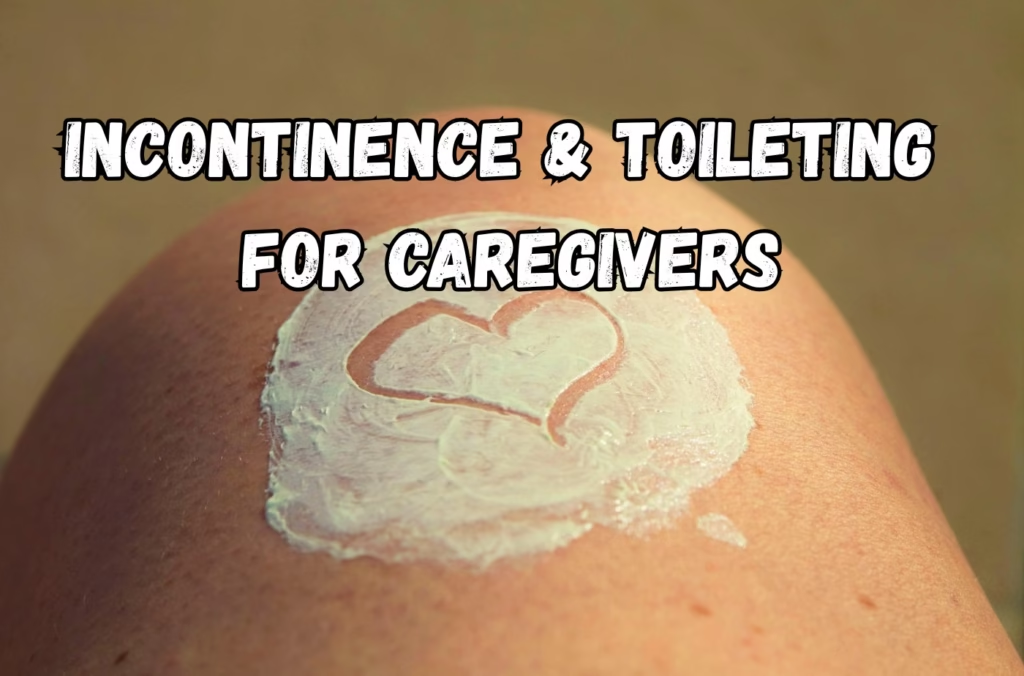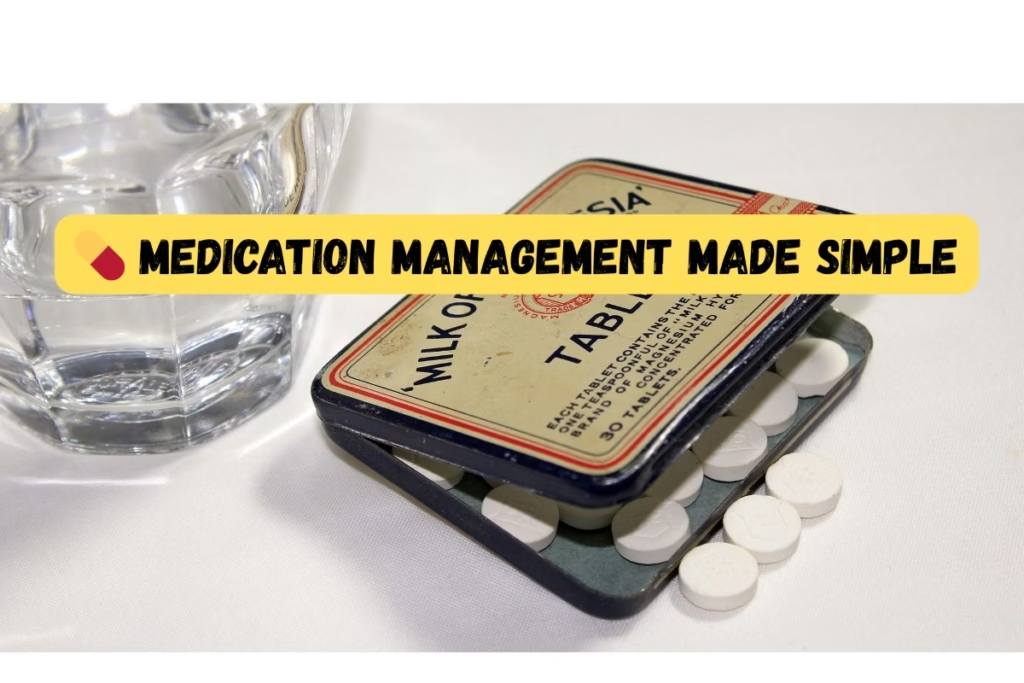Caring for a loved one can be both rewarding and challenging. Essential to this endeavor is finding the right empowering tools for caregivers that enhance care quality while fostering a supportive environment for the caregiver. From task management to emotional support, the resources available today have the potential to transform the caregiving journey into one that is more manageable and fulfilling.
1. Identifying Empowering Tools for Caregivers
Assessment of Caregiver Needs
Caring for a loved one with a chronic illness or aging-related needs can be deeply rewarding, yet it often brings challenges that demand a well-equipped approach. To begin, understanding the specific needs of the caregiver is paramount. This involves considering the physical, emotional, and practical demands placed on them. Each caregiving situation is unique, making a personalized assessment crucial.
Caregivers must manage medications, appointments, and daily care routines. They might also have to navigate complex healthcare systems while balancing work and their well-being. This assessment lays the groundwork for selecting the right tools to enhance caregivers’ capabilities. By identifying the areas where support is needed, caregivers can better hone in on resources that can provide substantial relief.
Overview of Caregiving Tools and Resources
Today’s caregivers have access to numerous resources that simplify their roles and enhance the care they provide. Apps and online platforms offer organized structures for tracking health records and appointments. Educational materials offer insights into disease-specific care techniques, while online support communities provide emotional support and practical advice.
Home safety products ensure a safer living environment for the care recipient, which is especially important in preventing falls and managing mobility issues. Transportation services and meal delivery options can also alleviate the caregiver’s daily workload. Budgeting tools and guides on navigating insurance claims can serve as valuable assets for financial management.
In the spirit of fostering autonomy and comfort for both caregivers and their loved ones, empowering tools for caregivers also include assistive devices. These are designed to promote independence for those receiving care, thus lightening the hands-on tasks for caregivers. With the right combination of tools and resources, caregivers can provide more efficient and compassionate care, allowing them to maintain a balanced and fulfilling life.
Remember, harnessing these resources is not a sign of weakness but an intelligent strategy for strengthening caregiving quality. By utilizing these tools, you can improve your ability to care for your loved one while also prioritizing your own health and well-being.
2. Technology-Driven Empowerment
Simplifying Daily Care with Innovative Apps
In today’s digital era, caregivers can significantly benefit from numerous mobile applications designed to simplify the complexities of daily care. For example, apps that assist with medication management can help ensure that loved ones take their medications at the correct times and dosages. Grocery delivery apps make it easier to maintain a healthy diet by having essential items delivered directly to your doorstep.
Furthermore, caregiving apps can also help with scheduling and organizing medical appointments, as well as tracking health metrics, such as blood pressure and glucose levels. This simplifies day-to-day tasks and helps caregivers keep vital health information readily available, which is crucial for managing chronic conditions effectively.
Remote Monitoring Systems for Peace of Mind
Remote monitoring technologies are increasingly pivotal in caregiving scenarios. They provide an extra layer of safety by allowing caregivers to monitor their loved ones’ health and well-being even when they cannot be physically present. Wearable devices can track vital signs such as heart rate and sleep patterns, alerting caregivers to potential health issues in real-time.
Additionally, home monitoring systems equipped with sensors or cameras allow caregivers to check in on their loved ones throughout the day, ensuring safety while maintaining independence for the person being cared for. This proactive approach can significantly reduce anxiety for both caregivers and their family members.
Utilizing Social Media for Support and Connection
Social media platforms have transcended the bounds of mere social networking, evolving into vital resources for caregivers needing support and connection. Online communities and forums are readily accessible spaces where caregivers can share experiences, seek advice, or find emotional solace from those in similar situations. These platforms can serve as a lifeline for caregivers, offering a sense of solidarity and community.
Moreover, social media enables the easy sharing of resources, ranging from informative articles to webinar announcements and support group meetings. This wealth of information can empower caregivers to make informed decisions about their loved one’s care while enabling them to maintain their well-being. In essence, empowering tools for caregivers, such as these social channels, can be transformative in fostering a supportive caregiving environment.
By harnessing these innovative solutions, caregivers can navigate their responsibilities with increased confidence and support, ultimately enhancing the quality of care they provide to their loved ones.
3. Enhancing Knowledge and Skills
Online Courses and Workshops for Caregivers
Knowledge is power, especially when it comes to caregiving. Thanks to the digital age, family caregivers have access to many online courses and workshops designed to enhance their caregiving skills. These educational resources cover a range of topics, from the fundamentals of caregiving to specialized care for conditions such as Alzheimer’s disease or Parkinson’s. Participants can learn at their own pace and choose subjects that best match the needs of their loved ones.
Furthermore, these online offerings are often developed by healthcare professionals and seasoned caregivers, ensuring that the knowledge is practical and based on real-world experience. Whether providing insights on managing daily care routines or offering strategies to handle emotional and physical stress, these courses empower caregivers. Such educational programs can improve care outcomes and provide a more confident caregiving approach.
Accessing Expert Caregiving Advice
Navigating the caregiving journey can be challenging, but you don’t have to do it alone. Access to expert advice is just a few clicks away. Many organizations and support groups offer online forums, direct consultations, and Q&A sessions with healthcare professionals. These resources provide valuable guidance and address specific concerns that caregivers may face.
By tapping into the expertise of clinicians, therapists, and specialist caregivers, families can gain insights into best practices for healthcare management. This ensures that caregivers are well-informed and up-to-date with the latest advancements and recommendations in healthcare provision. Empowering tools for caregivers should include reliable consultation options to help them make informed decisions and reinforce the support structure for both the patient and the caregiver.
- Connect with professionals offering tailored advice via digital platforms.
- Find support through online caregiver communities that discuss everyday challenges.
- Benefit from personalized tips and strategies to enhance patient care.
4. Health Management Tools
Medication Tracking and Management Applications
Medication adherence is a cornerstone of effective treatment, especially for those managing chronic illnesses. Tracking and managing medications can be daunting tasks for family caregivers. Empowering Tools for Caregivers can significantly assist in this area, for example, medication management applications. These applications are designed to keep an accurate schedule of dosages, refills, and administration times, thus preventing missed or duplicate doses.
Such apps often provide reminders and alerts directly to a smartphone or device, ensuring medications are taken at the correct time every day. Some apps even allow caregivers and patients to scan medication labels for easy input and setup. For those with multiple prescriptions, these applications can be vital, reducing stress and safeguarding against possible drug interactions.
Personal Health Record Systems for Efficient Care Coordination
Care coordination is critical in managing an individual’s health, especially when multiple healthcare providers are involved. Personal Health Record (PHR) systems are electronic tools that play a crucial role in compiling and sharing important health information. A PHR system streamlines communication between caregivers, patients, and their healthcare teams.
These systems enable caregivers to access medical records, lab results, and treatment plans at any time. They ensure the healthcare team is informed about the patient’s complete medical history, including allergies, past procedures, and current treatments. This comprehensive view enables caregivers to make informed decisions in collaboration with doctors, leading to improved care coordination and better health outcomes.
By utilizing these technological solutions, caregivers can provide more precise and efficient support to their loved ones. Properly using such digital tools can enhance the reliability of the care supplied and give caregivers peace of mind, knowing they have robust systems in place to manage the complex needs of those they care for.
5. Financial Resources for Caregivers
Caring for a loved one can be rewarding and challenging, especially when managing finances. Understanding insurance coverage and benefits is crucial for caregivers. It’s essential to thoroughly review the insurance policies of the person you care for, whether it’s a private plan, Medicare, or Medicaid. Benefits can vary widely, so look for specifics about coverage for long-term care services, home health care, and medical equipment. It would be beneficial to explore the types of care coordination and additional support services that are included. Reading the fine print can be tedious, but it can reveal opportunities to reduce out-of-pocket costs.
Grants and Assistance Programs for Caregiver Support
Several grants and assistance programs are available to provide financial aid to caregivers. Organizations such as the National Family Caregiver Support Program (NFCSP) offer grants to states to fund a range of supports that assist family and informal caregivers. Services may include:
- Counseling and training to help you access the services needed
- Respite care to give you a much-needed break
- Supplemental services, such as home modifications
Other non-profit organizations and foundations may offer specific programs for caregivers of individuals with certain diseases, such as Alzheimer’s or cancer. Researching and applying for these programs can be beneficial, as they can provide both financial help and supportive services.
Furthermore, tax credits and deductions are worth investigating. Caregivers may be eligible for certain federal and state tax deductions and credits for dependent care. This financial relief can help balance the budget and ease the stress of caregiving.
Remember, empowering tools for caregivers are available across the internet and in communities, but they require some digging and persistence to access. Support groups, both online and locally, can be invaluable resources for sharing information and tips about financial assistance and managing the complexities of caregiving tasks.
By utilizing these resources, caregivers can find some relief and support in their role, ensuring that they and their loved ones are cared for and supported.
6. Emotional Well-Being and Respite Resources
Support Networks for Emotional Well-Being
Caregivers shoulder incredible responsibility, and maintaining emotional well-being is crucial. Seeking peer support connects caregivers with others on similar journeys, offering a sense of solidarity and community. This support can be found through local groups or online forums, where shared experiences can provide comfort and practical advice.
Counseling is another avenue that caregivers can explore. Professional guidance can help manage the stress, anxiety, and emotional fluctuations that come with caregiving. Counselors or therapists specializing in caregiver needs can provide effective coping strategies and mental health support to help caregivers maintain their well-being.
Preventing Caregiver Burnout with Respite Care
Providing unrelenting care can lead to burnout, resulting in physical, emotional, and mental exhaustion. Understanding and utilizing respite care options can be significantly beneficial. Respite care offers caregivers a much-needed break, enabling them to rest and recharge. This can include in-home assistance, adult day care centers, or short-term residential care.
Utilizing these services is not an indulgence, but a crucial component of a sustainable caregiving strategy. Utilizing such empowering tools for caregivers ensures the highest-quality care provided to loved ones while preserving the caregiver’s health and well-being. Availability will vary based on location, so research local options and financial assistance programs designed to support the inclusion of respite care in standard caregiving routines.
Remember that self-care is not selfish. Accessing these resources is essential, and it can strengthen one’s ability to care for others more effectively. By taking care of their emotional health and utilizing respite care, caregivers can achieve a healthier balance between their responsibilities and personal needs.
7. Building a Supportive Community
Engaging in Local Support Groups and Resources
Caring for a loved one can be both rewarding and challenging. Local support groups and resources are invaluable for family caregivers seeking advice, comfort, and education. They offer a forum for sharing experiences, strategies, and connecting with others in similar situations.
By participating in these groups, caregivers can learn new skills and find solace in the shared understanding of the caregiving journey. Many resources, such as senior centers, healthcare providers, and community organizations, often host or direct individuals to local support groups.
Creating Your Own Caregiving Support Network
Sometimes, the support you need might not be available through existing groups, or you may desire a more personalized approach. Creating your caregiving support network can be a proactive step towards building a community tailored to your specific needs.
You can start by recruiting friends, neighbors, relatives, and other caregivers who understand the demands of caregiving. Together, you can exchange empowering tools for caregivers, practical assistance, and the moral support that keeps you going. Utilizing online platforms for coordination and communication can make managing this network more efficient and effective.
Remember, establishing a support community lays a solid foundation for caregivers to better handle the ebbs and flows of their essential role. By fostering connections, sharing knowledge, and encouraging each other, you help cultivate a nurturing environment for both caregivers and their loved ones.
8. Practical Tips for Implementing Empowering Tools
Customizing Tools to Fit Your Care Needs
Catering to the unique needs of each caregiving scenario is critical when selecting empowering tools for caregivers. Tools and resources should not be one-size-fits-all. Instead, they should synchronize with the specific health conditions, preferences, and schedules of your loved ones. For example, if you’re caring for someone with mobility challenges, tools such as customized wheelchairs or home modification services can significantly enhance their quality of life.
Similarly, caregivers themselves can benefit from personalized tools. Whether it’s scheduling software that aligns with your availability or support groups tailored to your emotional needs, customization is key. Consider resources like mobile health apps that track medication schedules or offer stress management techniques, ensuring they fit seamlessly into your caregiving routine.
Staying Updated on Caregiving Resources
With the healthcare landscape constantly evolving, staying up-to-date on the latest resources and developments is essential for effective caregiving. Sign up for newsletters, join caregiving forums, and participate in local support groups to stay informed and connected. These outlets can provide the latest news on technological advancements, care strategies, and policy changes that may affect your caregiving duties.
Do not hesitate to reach out to professionals and experts in the field. Healthcare providers, social workers, and patient advocates can often provide valuable insights into new resources and tools that can enhance your caregiving experience. By staying informed about new developments, you can utilize the most effective and innovative resources to deliver the best possible care.
Remember, being well-equipped and informed is fundamental to empowering caregivers and ensuring the well-being of those under your care. Constantly personalize your tools and seek knowledge to provide compassionate and practical support.
Key Takeaway: By harnessing empowering tools for caregivers effectively, caregivers can bolster their capacities to provide conscientious care, balance personal well-being, and cultivate a sustainable caregiving experience. Embracing the available resources ensures that no caregiver has to navigate their journey alone.


